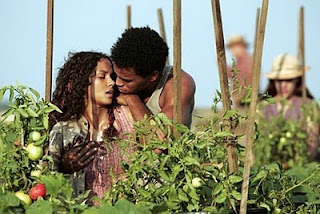
by Imani Perry
I entered graduate school in the mid-1990s, a period marked by the rise of the black public intellectual: Michael Eric Dyson, Henry Louis Gates Jr., Cornel West, and a host of other prominent scholars who became household names. Suddenly newspapers, popular magazines, and even television shows featured black intellectuals. The reaction was bifurcated. Some celebrated this development as an opportunity to elevate the discourse on social policy, especially on issues of race. But there were also complaints that this new crop of intellectuals talked too much and did too little. And some felt that by talking so much to the public, the black intellectuals risked diminishing their scholarly legitimacy.
At the time, the conversations among black students at elite graduate programs were framed around whether to become public intellectuals. But did we have the charisma or conversational skills to do this kind of work? Such a question was rarely raised. Instead we debated what kind of intellectual we wanted to be: one who sat in the ivory tower? Or one who talked to the people? There was a general skepticism that both roles could be successfully played simultaneously.
Becoming a public intellectual appealed to many of us because it seemed to provide a way of making one's scholarship more meaningful. Our ideas would be available to people in our home communities who might not ever set foot inside a university. Such a prospect was affirming. In a career where labor and education often don't lead to economic gains, it is easy to feel diminished by society. Being seen on television could cut against that nagging sense of devaluation.
Although there was a slight ebb in the amount of attention paid to black public intellectuals in the early years of this century, the limelight shines once again: The democratizing power of new digital forms of communication and 24-hour cable television news networks has renewed the role of the black public intellectual. Additionally, President Obama's election drew particular attention to the community of formally educated and politically engaged African-Americans to which he and Michelle Obama belong, a community that includes many scholars. It is at this moment of renewal that we need to rethink what it means to be a public intellectual.
I recently spent an afternoon with girls at an urban high school in Philadelphia that serves a largely black, poor, and working-class community. I am frequently invited to speak to young people, usually girls. I talk to them about academic success and offer some words of motivation. This group of girls had a stunning combination of brilliance and need. I spoke about my personal history and we discussed their interests, and our mutual inspirations. It was a different kind of public-intellectual experience. Around the same time, I gave interviews that were quoted in newspapers in the United States and Britain. Guess which "public intellectual" work felt more meaningful? I'm not suggesting that everyone would take teenagers over The New York Times,but if I had to choose, I certainly would.
For me, it's a matter of tradition. From the late-19th until the mid-20th century, it was a matter of course that African-American intellectuals engaged in public life in a multitude of ways. They developed school curriculums, worked in and for civil-rights organizations like the NAACP, and participated in civic organizations, churches, and professional societies. James Weldon Johnson, for example, author of the poem "Lift Every Voice and Sing," which was later set to music and became known as the Negro national anthem, was a principal, lawyer, ambassador, secretary of the NAACP, and one of the founders of the American Society of Composers, Authors, and Publishers—which helped establish modern copyright law.
Read more @The Chronicle of Higher Education

